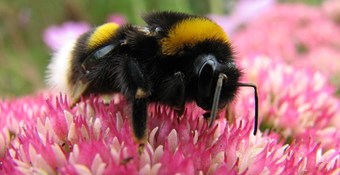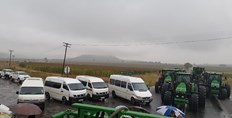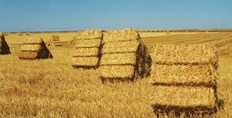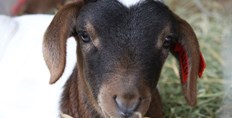Agri Hour
Critical data on SA agricultural sector expected this week─── 09:00 Tue, 23 Feb 2021
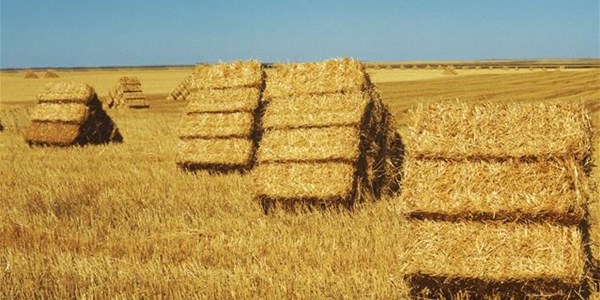
Wandile Sihlobo, chief economist at the Agricultural Business Chamber of South Africa, Agbiz, provides a weekly insert about the latest on the global as well as South African agricultural markets.
See podcast below.
The most notable releases are the Quarterly Labour Force Survey data for the fourth quarter of 2020, which is due for release on 23 February, says Sihlobo. On 24 February, the results of the 2020 Global Food Security Index will be published. On 25 February, the Crop Estimates Committee releases its first production estimates of South Africa's 2020/21 summer crops. But in addition to the data releases, the tabling of the national budget on 24 February could also have important implications for the sector from a policy perspective.
The Quarterly Labour Force Survey (QLFS) data will be of particular interest following the 16,1% increase in the minimum wage to R21,69 per hour with effect on 1 March. Agriculture has had a good season in 2019/20, which improved farm incomes but the positive performance was not widespread. The subsectors that were affected by the lockdown regulations performed poorly. Such subsectors include the wine industry, tobacco, cotton and floriculture, amongst others.
The wine industry's negative impact was already evident from the third quarter of 2020, where farm jobs in the Western and Northern Cape fell by 37% and 8% on a year-on-year basis, respectively. In the case of the Western Cape, agricultural employment fell to the lowest levels since the last quarter of 2014, at 136 729.
The fourth-quarter results will indicate whether this was a temporary blip or if the industry remained under pressure throughout the year. Discussions we have had with the wine industry suggest that the recent increase in the minimum wage could cause a further squeeze on incomes in a subsector that already had cash flow challenges resulting from the recent ban on domestic sales of wine. Nevertheless, the Q4 2020 will be historical. The actual effects of the current minimum wage increase on jobs will be apparent later this year.
In terms of the national budget, the vital point that agricultural roleplayers will most likely be watching is the National Treasury's messaging about the Land Bank, which has been experiencing liquidity challenges for a while. In the Medium-Term Budget Policy Statement presented in October 2020, Finance Minister Tito Mboweni noted that the Land Bank would "require an additional R7 billion over the medium term to support its restructuring". “We will be watching closely to see if there will be any follow through on this, especially in the context of the country's fiscal constraints,” adds Sihlobo. The Land Bank is an essential institution in agricultural finance, interlinked with primary agriculture and various agribusinesses. Hence, any possible failures would potentially have broader implications on South Africa's agricultural sector and food security.
The Economist Global Food Security Index, which will also be released on the same day as the national budget, will provide South Africa with a historical view of the food security conditions in 2020. We expect South Africa's food security conditions to have deteriorated somewhat from 2019 as more people were out of work because of the pandemic. In 2019, South Africa ranked as the 48th most food-secure country out of 113 countries measured in The Economist Global Food Security Index, a few inches worse from last year’s ranking of 45. This ranking was relatively good and leading in the African continent, although slightly behind most BRICS countries, i.e. Brazil, Russia, India and China. For example, South Africa has ranked 13 spots behind China, 9 places behind Brazil, 6 spots behind Russia, and 24 spots ahead of India.
The current food security conditions are primarily supported by the productivity gains in agriculture, which ensured that South Africa could supply food at a reasonably lower cost. Nevertheless, there are pockets of food insecurity within South Africa when one considers a household-level perspective. Food insecurity speaks to the country's general inequality, where some households are food secure, and over 6 million South Africans of low-income households are not, primarily due to affordability. Food insecurity is significantly more prevalent in Limpopo, KwaZulu-Natal and the Eastern Cape. Sihlobo says they fear that in 2020, this may have been exacerbated by the rising unemployment and closure of various businesses because of the pandemic. The National Income Dynamics Study – Coronavirus Rapid Mobile Survey (NIDS-CRAM) published last week also pointed to a deterioration in hunger in South Africa in late 2020.
The Crop Estimates Committee data, which are also out this week, will provide a view of the potential size of the 2020/21 summer grains production. The season started on a positive footing with favourable rainfall and higher commodity prices, which incentivised an increase in all grain area plantings by 6% to 4.2 million hectares. As stated in the previous notes, this dataset comprises maize (white and yellow), soybeans, sunflower seeds, groundnuts, sorghum and dry beans. There is an expansion in most crops, except sunflower seeds, whose plantings declined by 5% year-on-year (y/y) to 473 300 hectares, which would be the smallest area in nine years. The focus here will mostly be on maize and soybeans, a primary staple grain and oilseed, respectively. Sihlobo says they estimate that South Africa's maize production could amount to 16,66 million tonnes, which would be the second-largest maize harvest on record (15,41 million tonnes in 2019/20). Meanwhile, the soybean harvest could amount to 1,47 million tonnes, up by 18% y/y and would be the second-largest harvest on record.
In summary, the quarterly labour force data, national budget, global food security, and crop estimates data will be significant events to watch this week. What emerges from these critical events could have implications on the sector, particularly the national budget's outcome regarding the Land Bank challenge. Meanwhile, the Crop Estimates Committee's production estimates data may be key for domestic crop prices and, ultimately food inflation.
OFM-nuus/Blaine Jones

